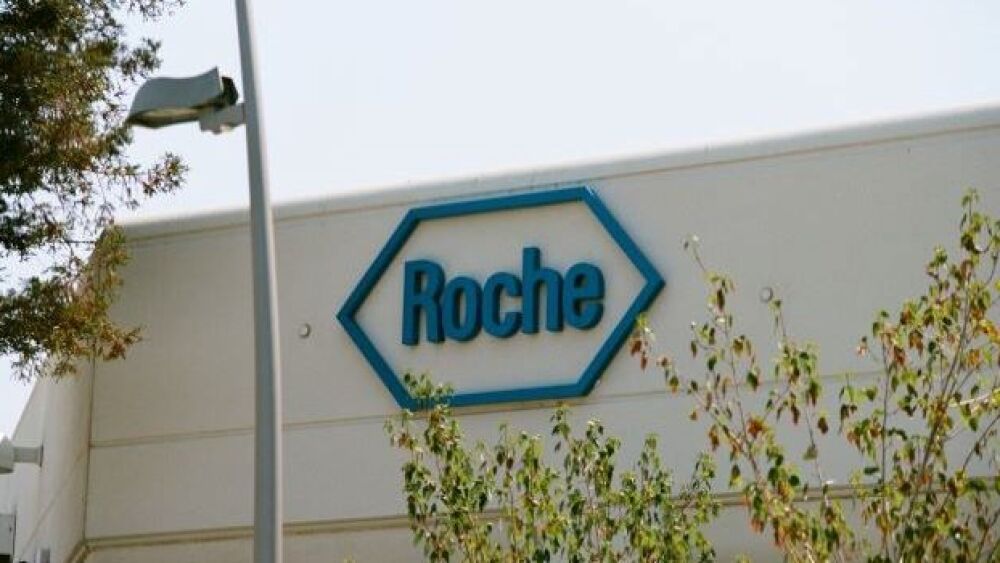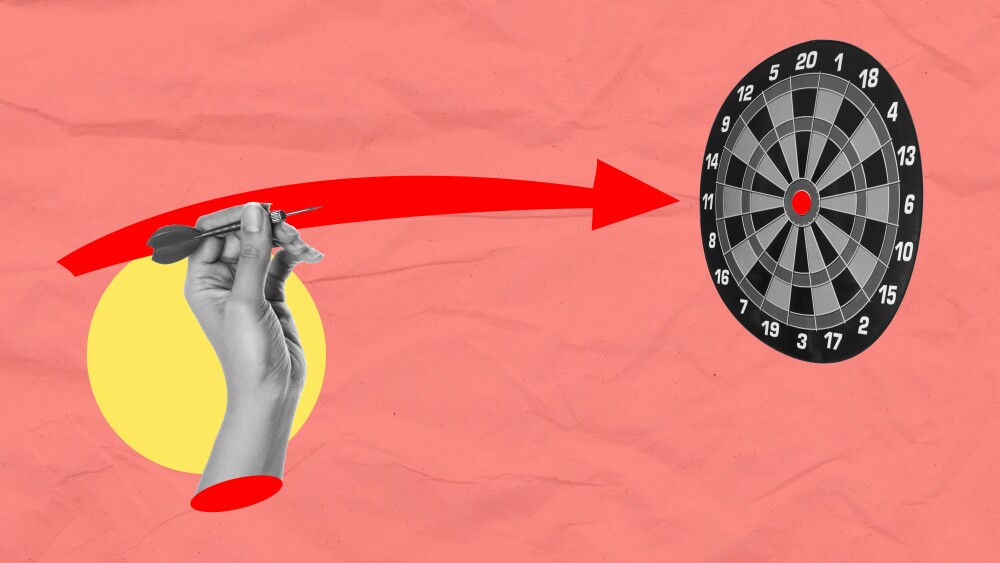Fenebrutinib in a mid-phase trial reduced brain legions in relapsing forms of multiple sclerosis, the company reported. It is the only reversible BTK inhibitor currently in Phase III MS trials.
Pictured: Blue Roche logo on white building/Smith Collection/Gado/Getty Images
Roche confirmed its slot in the race to bring a Bruton’s tyrosine kinase inhibitor to multiple sclerosis on Wednesday as its subsidiary Genentech announced its candidate met the mark in a Phase II trial.
Fenebrutinib significantly reduced brain lesions in patients with relapsing forms of MS, meeting both primary and secondary endpoints of the trial, Roche said. The study compared the number of new T1 brain lesions and new or enlarging T2 brain lesions, compared to a placebo, using MRI scans. T1 lesions are areas of severe CNS damage, while T2 brain lesions provide information about disease burden in MS.
Though the complete results for the Phase II study will be shared at an upcoming medical meeting, Roche said no new safety concerns were identified in the top-line data. Fenebrutinib is continuing to Phase III studies both in patients with primary progressive MS, slated to be completed in December 2026, and relapsing MS, to be completed in November 2025.
The market for disease-modifying therapies in MS is currently estimated at around $19 billion. But that revenue is expected to increase to $30 billion by the end of the decade, according to research from GlobalData, particularly as Bruton’s tyrosine kinase (BTK) inhibitors approach the finish line.
While four BTK inhibitors are currently in Phase III for MS, analysts anticipate Sanofi’s tolebrutinib to lead the charge with forecasted sales of $2.6 billion. The trial of tolebrutinib is estimated to wrap up in August 2024, five months after the trial of Biogen’s orelabrutinib. The Phase III trial of Merck KGaA’s evobrutinib is scheduled to be completed June 2026.
However, all three of these therapies are currently under FDA clinical holds due to safety concerns relating to cases of liver injury. Holds were placed on both tolebrutinib and orelabrutinib last year and in April on Merck KGaA’s evobrutinib. In February, Sanofi dropped its myasthenia gravis program for tolebrutinib altogether.
Roche said fenebrutinib is the only reversible BTK inhibitor of the bunch, potentially giving it a competitive leg up. Drug resistance can develop when BTK variations are not able to bind to irreversible inhibitors.
In January, Eli Lilly’s mantle cell lymphoma treatment Jaypirca (pirtobrutinib) won the first FDA approval of a reversible BTK inhibitor.
Roche’s already approved MS treatment, Ocrevus, generated $6.6 billion in sales last year. However, patent expiration for the drug is expected by 2029 in the U.S. and in 2028 in European markets. Expiration opens the door for generic development, leading to a potential drop-off in sales and creating more urgency around Roche getting another blockbuster on the market for MS.
Kate Goodwin is a freelance life science writer based in Des Moines, Iowa. She can be reached at kate.goodwin@biospace.com and on LinkedIn.






